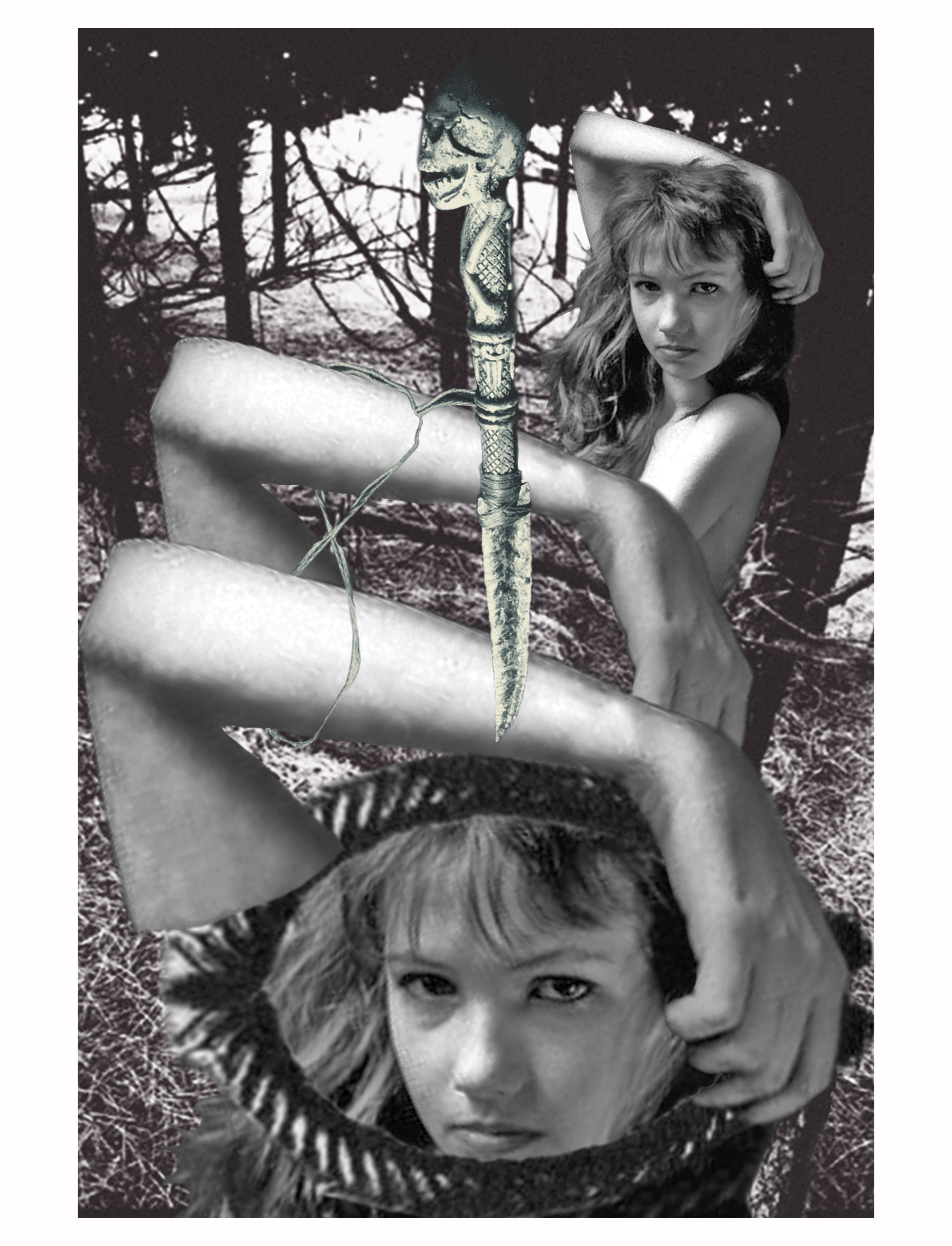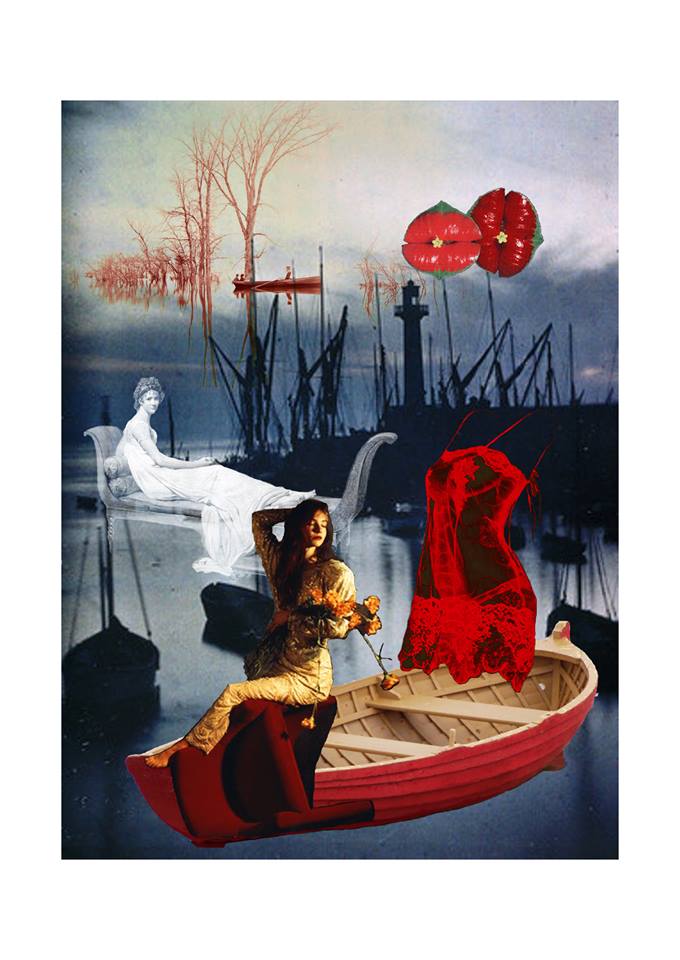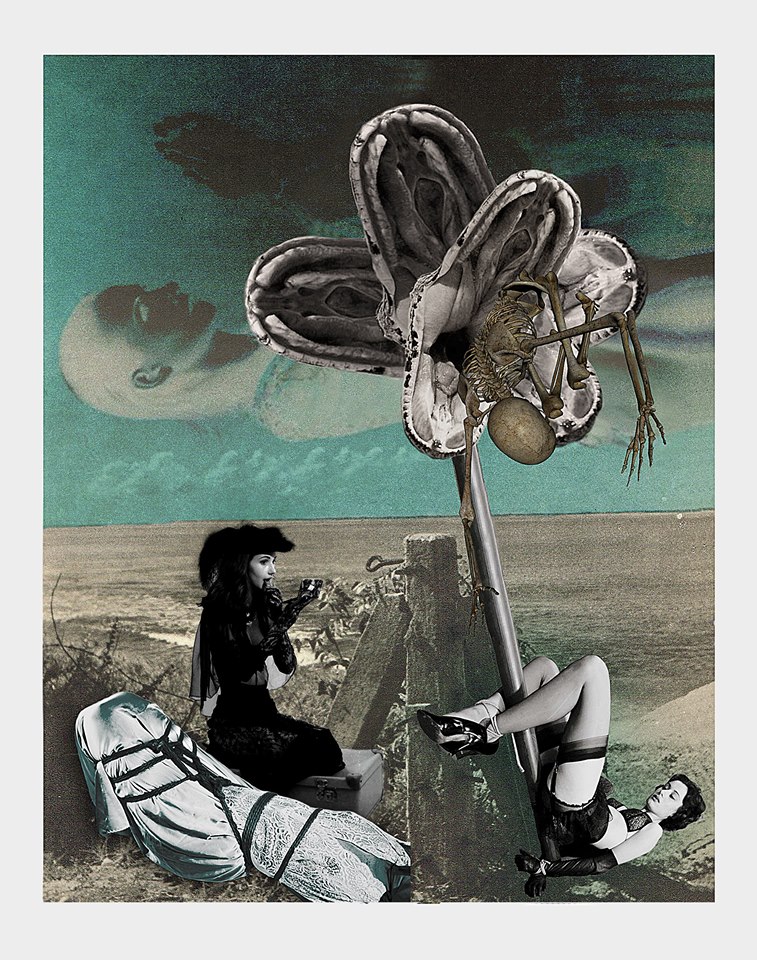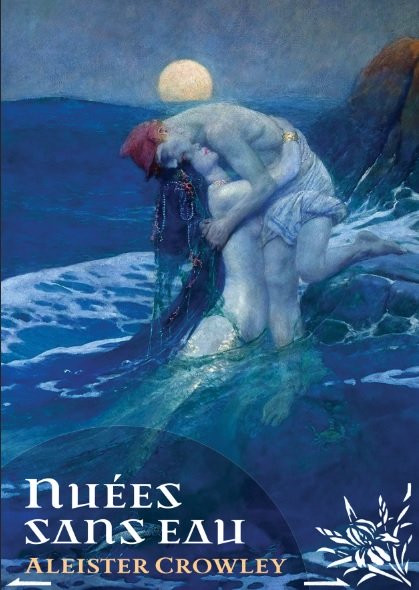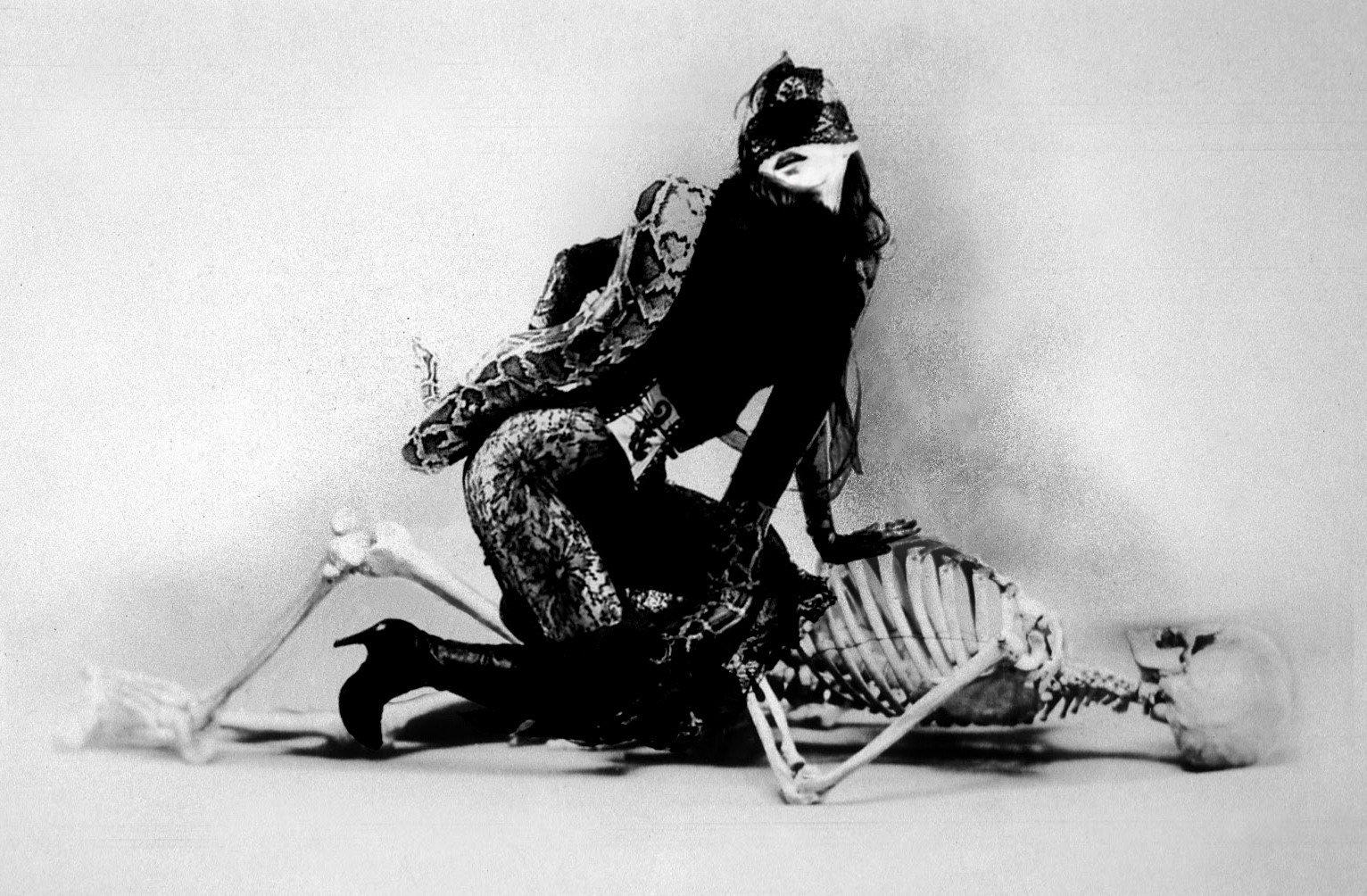
The digital collages illustrating this first french translation of Clouds without Water, by my former partner Anja Bajuk, a Croatian artist and specialist in industrial music, were created in 2016 to pay tribute to the Polish poetess and courtesan, dancer and costume designer Diana Orlow, aka Lilith von Sirius (1971-1997), who was born in Poznan and died in Hamburg. Diana (the first polish initiate of the O.T.O.) also made the first translation into her native language of the Liber Legis or Book of the Law, a sacred text at the very core of the Thelemite corpus.
These collages seemed to me to be ideal for illuminating my french translation of Aradia, or the Gospel of the Witches (1899), by Charles Leland (1824-1903), one of the fundamental texts of Wicca and Neopaganism. This writing presents itself as the very word of the Goddess. Diana being my Goddess, I proposed these creations to my previous editor who refused them, considering them too « adult » to be included in a book which he wanted to reach a large audience, notably composed of young witches who might not have heard anything of their presence. He was not wrong. That said, informed quite late of this cruel but just decision, I had three days to replace them at short notice with other works by Anja, which were again a tribute, this time to the German artist Unica Zürn (1916-1970), with whom I, Anja, Diana (needless to say) and others close to me, living or dead (at least on the earthly plane), have or had deep and violent affinities of a magickal nature.
Moreover, even if they had been accepted, these images would have been reproduced in black and white, thus taking away much of their strength. So my translation saw the light of day, illustrated with the new selection, at « Éditions Danaé » in 2018 under the title Aradia, l'Évangile des Sorcières.
Clouds without Water being a dark story of love and death, and my story with Diana also being a dark story of love and death, it soon became clear to me that these collages would be perfect for historicizing my french translation of the Crowley text, they were closer to it than to Aradia, all things considered. Moreover, they could be reproduced in color, which kept their efficiency in terms of the wildness of love that characterizes both Clouds and my story with Diana. I would like to thank my friend Kazim, the courageous founder of Hexen Press, for having understood the ritual importance of my approach, for I wanted (with all the strength of my soul) to compose with him a talismanic work, endowed with a real power on the invisible plane, where the energies of the author, the translator, the illustrator, my lifelong lover, the editor, the preface writer and even the dedicatee* could be effectively combined.
The book we created is not only a simple poetic and decadent delirium enhanced by illustrations that I consider magnificent: it is a magickal attack against all the enemies of Love.
Philippe Pissier, this Tuesday, October 25, 2022 e.v.,
Sun and Moon in Scorpio, from the mystical lair of the Cheshire Cat.
* Olivier Cabière, who published my french translation of Rodin in Rime (1907), another collection of poems by Crowley, under the title Le dit de Rodin (Le Vigan : L'arachnoïde, 2018). This is the most accomplished Orphic work of the author with this Clouds without Water, if we except of course some scattered texts, as well as the Liber Legis, the Liber VII and the Liber LXV in the Holy Books of Thelema - but these three songs are directly related to the initiatory universe and are of very different construction. This literary opus is the fruit of the friendship between Auguste Rodin and the magus. The French edition is prefaced by André Murcie (who edited the literary magazines Style, Louve and Alexandre) and is illustrated with ten erotic lithographs by the master, virtually unknown in France. They were offered by the sculptor to our Aleister. The appendices contain, among other things, Rodin’s letters to Crowley, and an interview of the latter by Fernand Hauser at the home of Marcel Schwob (the author of the Livre de Monelle), published in the daily newspaper La Presse on Friday, April 3, 1903.
